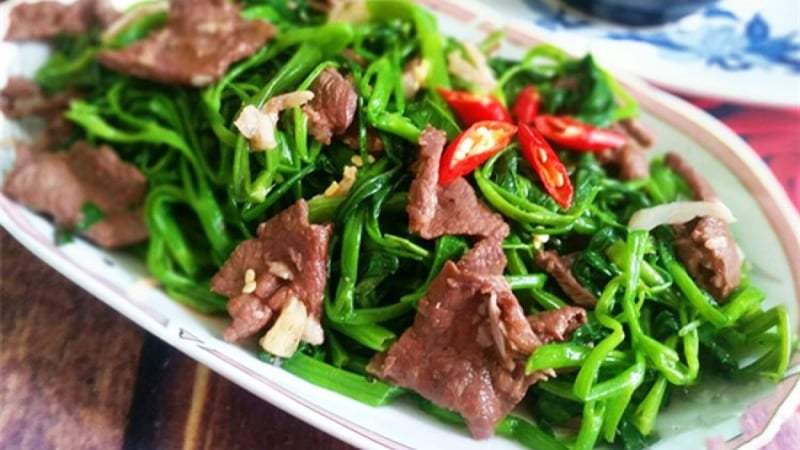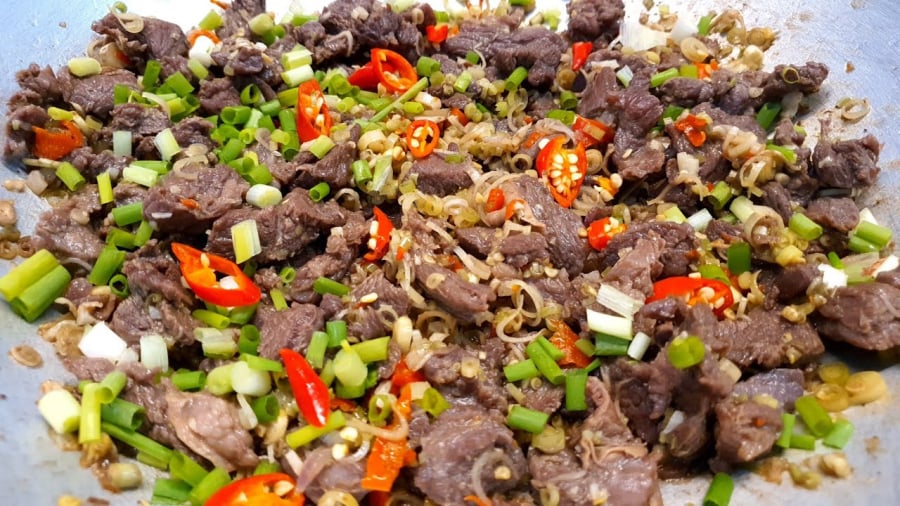Beef is a popular choice of meat among many, but buffalo meat offers a nutritious alternative. With its high protein content and lower fat levels compared to beef, buffalo is a favorite among health-conscious consumers. It is also an excellent source of essential minerals such as iron, zinc, and vitamin B12, which are crucial for blood formation and maintaining healthy nerves.
The fat found in buffalo meat is mostly unsaturated, which is beneficial for cardiovascular health. Its low cholesterol content makes it a recommended option for those following a healthy diet. Overall, buffalo meat is a suitable choice for those who lead active lifestyles and focus on muscle-building.
However, despite its nutritional benefits, buffalo meat may not be suitable for everyone.

5 Groups of People Who Should Avoid Eating Buffalo Meat
Individuals with Gout
Buffalo meat contains high levels of purines, which, when metabolized by the body, produce uric acid. While healthy individuals eliminate uric acid through their kidneys, those with gout experience a disruption in this process, leading to a buildup of uric acid in the blood. This results in the formation of crystals at the joints, causing intense pain and discomfort. To prevent exacerbating their condition, individuals with gout are advised to steer clear of buffalo meat.
People with High Blood Pressure and Cardiovascular Issues
Buffalo meat contains cholesterol, sodium, and fatty acids that can impact cardiovascular health when consumed in excess. As a red meat, buffalo meat should be consumed in moderation by individuals with high blood pressure or cardiovascular concerns. Regular consumption may also increase the risk of arterial blockage. Therefore, it is essential for those with hypertension or heart-related conditions to consult their doctors about appropriate dietary choices.
Those with Weak Digestive Systems
Buffalo meat is tougher and harder to digest than other types of meat. Improper chewing can strain the digestive system. The elderly, young children, and individuals with weak digestive systems or stomach, esophageal, and colon issues should exercise caution. Overconsumption may lead to bloating, indigestion, and even abdominal pain. For safety, opt for softer cuts of meat, cook thoroughly, and consume in small quantities if necessary.

People Recovering from Illness or Surgery
The human body is typically weakened after an illness or surgery, requiring time to heal and regain strength. While buffalo meat is nutrient-rich, it is also difficult to digest and can strain the digestive system and liver. During recovery, it is advisable to opt for softer, easier-to-digest foods such as porridge, white meat, and fruits.
Individuals with a Hot Constitution, Prone to Heat-Related Issues
According to Eastern medicine, buffalo meat is considered cooling in nature, but it generates heat in the body due to its high protein content. For those prone to acne, mouth ulcers, and constipation, excessive consumption of buffalo meat may aggravate these conditions. Additionally, buffalo meat is often prepared with spicy ingredients like pepper and chili, further increasing its heat-inducing properties. Instead, opt for cooler, less protein-rich foods like fish or tofu.
Who Should Avoid Eating Pork Heart, No Matter How Tasty It May Be?
“Pork offal, though versatile and delicious, may not be suitable for everyone’s palate or health. The consumption of pork offal dishes can potentially exacerbate existing health issues for certain individuals. It is important to be mindful of one’s health conditions before indulging in these culinary delights.”
“Those Who Should Avoid Eating Bamboo Shoots Soup During Tet”
Canh măng is a traditional Vietnamese dish often served during the Lunar New Year celebrations. While it is a delicious and beloved dish for many, it may not be suitable for everyone. The dish’s unique ingredients and preparation methods may pose potential health risks for some individuals, and thus, it is important to exercise caution when consuming this dish.





































